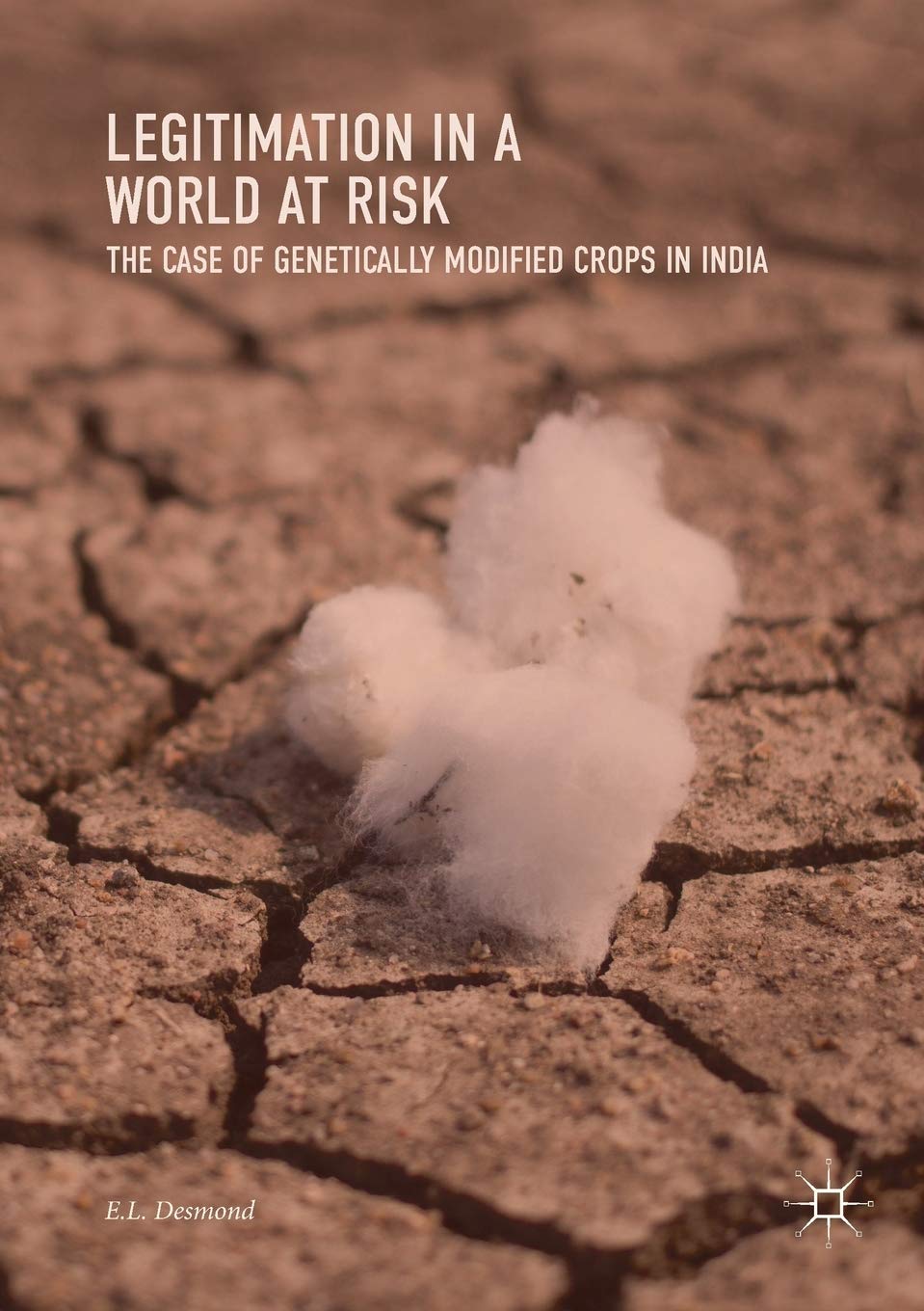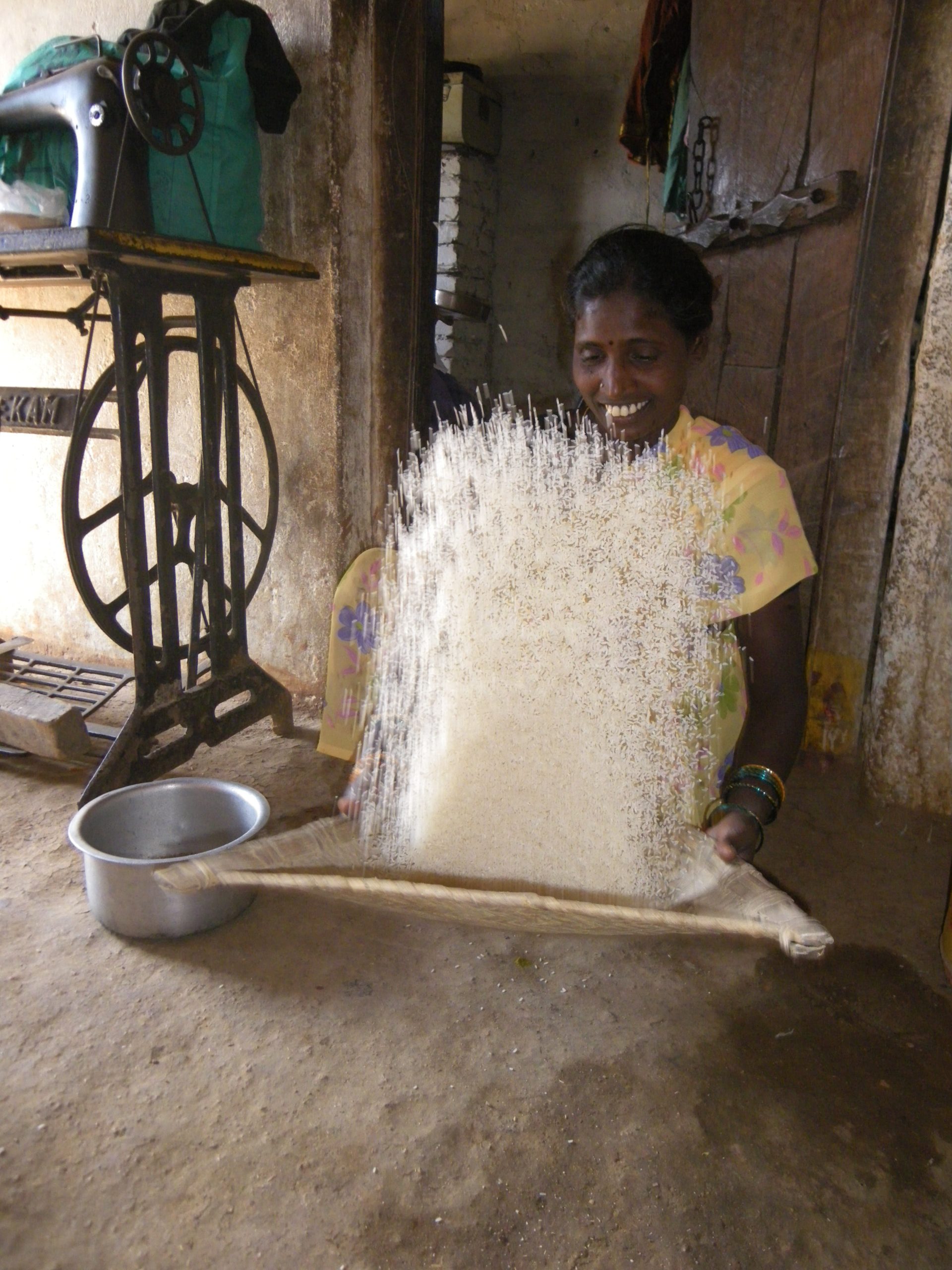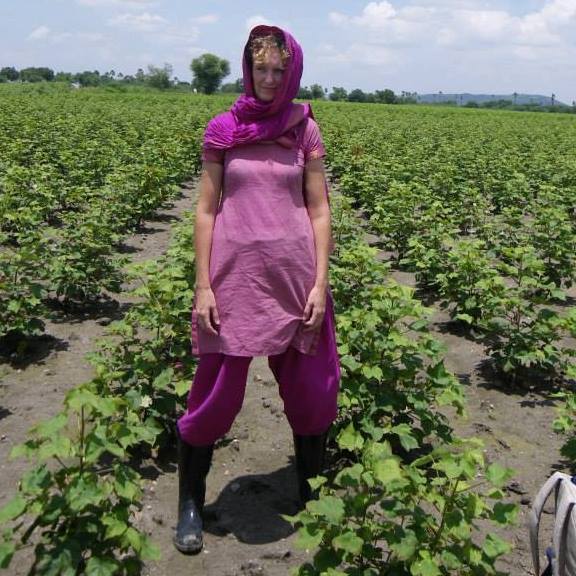
Based on meticulous field work in India’s cotton belt…Elaine Desmond has demonstrated remarkable scholarship in presenting the process of technology legitimation and delegitimation at different levels of politicisation. In doing so, the work is potentially seminal…
Professor Sarthak Gaurav, IIT Bombay

An extract from the introduction of
Legitimation in a World at Risk
May you now guard Science’ light
The Life of Galileo, Bertolt Brecht
Kindle it and use it right
Lest it be a flame to fall
Downward to consume us all
This book explores the conflict surrounding genetically modified (GM) crops in three Indian villages using the concept of legitimation. It focusses on Bt cotton, currently India’s only GM crop, and examines how power relations in the villages impact upon the way in which Bt cotton is variously legitimated or delegitimated by cultivators themselves. The book argues that the findings from the villages provide significant insights for the global legitimation struggle which the negotiation of a world at risk entails, and within which the conflict surrounding GM crops is embedded.

Book Reviews
“[Elaine Desmond] brings to light the views of farmers on Bt cotton, the only genetically modified crop currently cultivated in India. … the author has produced a thought-provoking work that navigates this controversial topic with a new lens, by digging deep into politics and society in village India.”
American Journal of Sociology

“The book certainly is a scholarly addition to the body of knowledge on risk theory, framework and risk societies. It has effectively raised further areas of research useful for researchers in studying risk societies. … It rightly predicts future negotiations of risk revolving around these concerns. Finally, the findings of the book have policy implications, particularly with respect to reducing the economic and social costs and to initiating a collective response to risk.”
Asian Journal of Social Science


Explored through stakeholder analysis and village fieldwork in the crisis-ridden state of Telangana, this book exposes democratic flaws in mediating risk exposure, markets and social justice. It is an original contribution to scholarship on genetically modified (GM) seeds and builds a powerful case for the redistribution of resources and knowledge.
Barbara Harriss-White, Emeritus Professor of Development Studies, Oxford University
